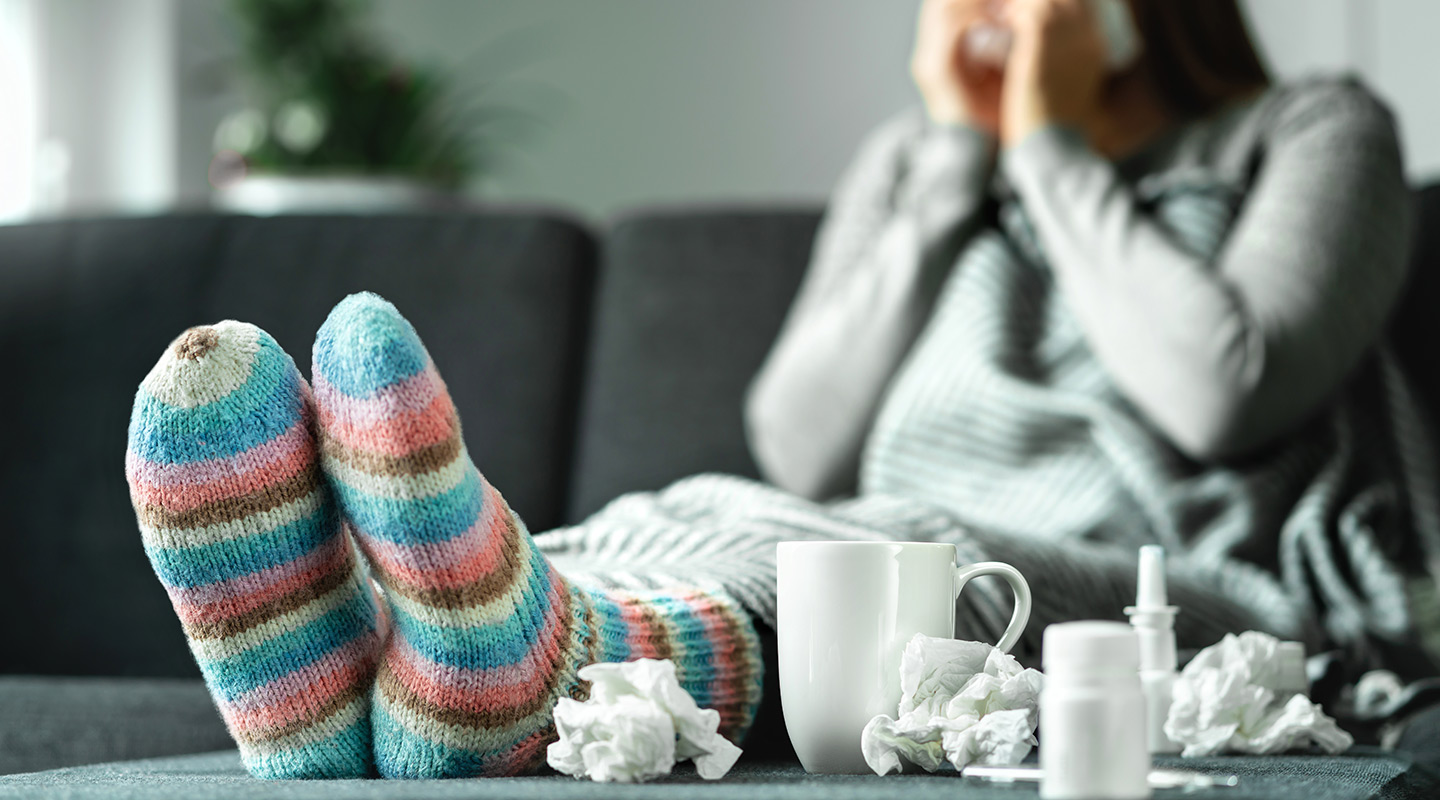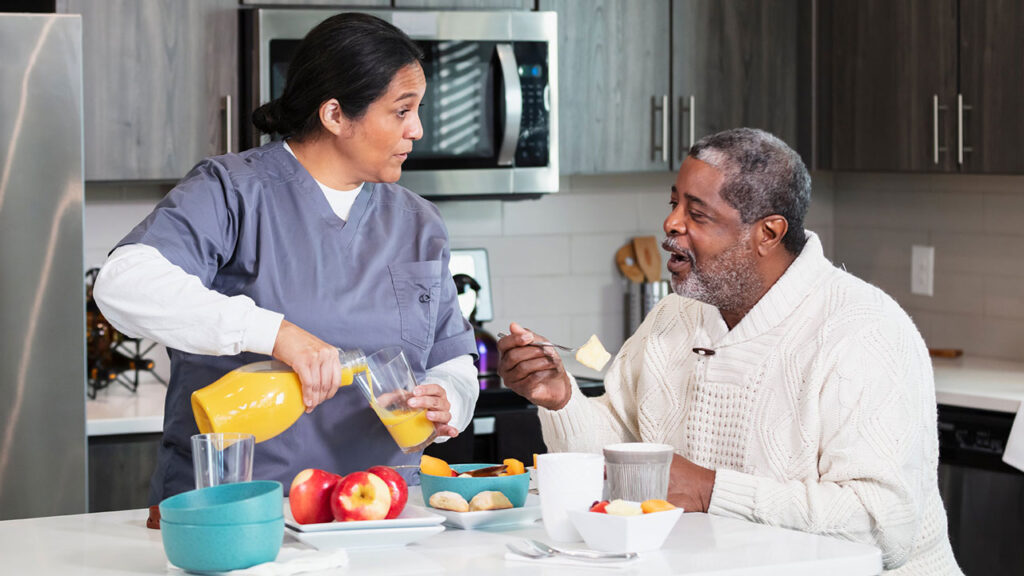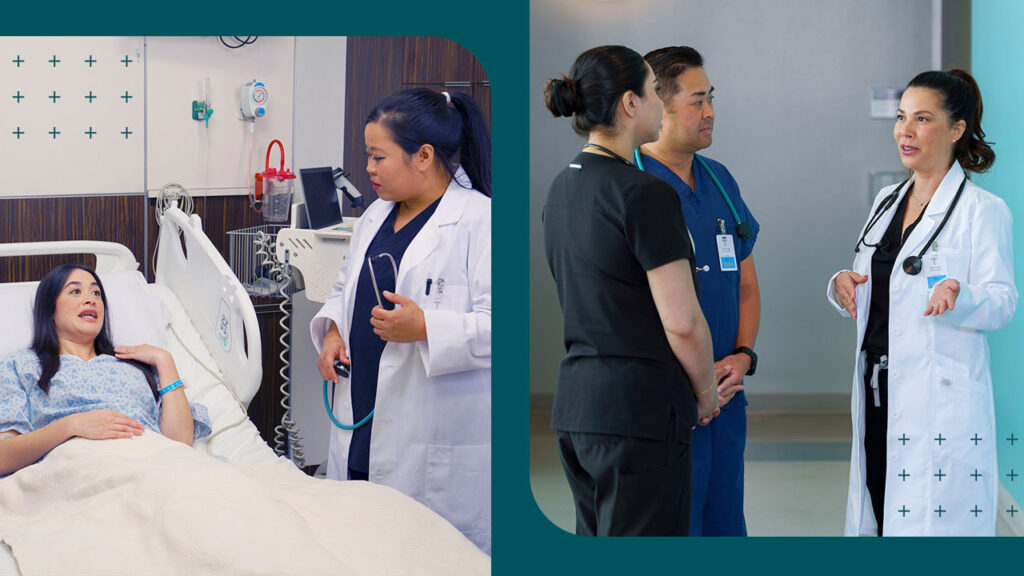How do they do it?
We all wonder. How do nurses keep from getting sick on the job? As a nurse, you’re already at a disadvantage by virtue of your occupational givens: irregular hours (which can equate to sleep deficit), relentless stress, and yes, regular exposure to germs. So what’s the secret? How do you stay healthy as a nurse?
The short answer is: You don’t. Not always. Unless you’ve made some kind of Faustian bargain (not recommended), you’re going to come down with the occasional cold, or flu, or some other ailment. And the new normal of Covid outbreaks and strains has exacerbated all of the demands of your job, and heightened your need to stay vigilant when it comes to your own health.
There’s no panacea, but there are ways to mitigate the risks. We made a list! Some of it might seem obvious (some of it is obvious), but we’ve broken each strategy down with some specific whys and hows you might not have thought of, or know about.
The main strategy is this: Make your plan, be disciplined, and most importantly, be kind to yourself. Nobody’s perfect, and nobody stays perfectly healthy all the time. You won’t be able to care for your patients if you don’t take equal care of yourself.
1. Wash Your Hands (with the Right Soap)
Yes, you already know that frequent faucet visits are hygiene 101, but this one’s so important it would be weird not to include it. So let’s break this immunity imperative down: Are you using the right soap, for the right length of time, at the right cadence? Here’s a quick cheat sheet on best practices on which soap to use for keeping your hands clean on and off shift:
- Antimicrobial soap: These soaps are supplemented with an antimicrobial agent like alcohol or triclosan, so they don’t just remove microorganisms, they kill them – and they can even continue to repel microbes for a while after you’ve finished washing. The downside: Frequent use of antimicrobial soap may have a macro effect in contributing to resistant bacteria.
- Regular soap: For nurses in environments with ambulatory patients where there is a lower risk of passed infection, non-antimicrobial soap is perfectly adequate for handwashing. It’s also perfect for home hygiene, to help minimize the above-mentioned risk of bacterial resistance.
- Handrubs/sanitizers: Waterless hand disinfectants are an excellent alternative to antimicrobial or traditional soap, because they can disinfect between patients without requiring a trip to the washroom – you don’t always have time for one – and they’re easy to carry with you. But if your hands are visibly soiled, they’re not the best option, as they don’t actually remove material, since you don’t rinse.
One very important handwashing addendum that applies to all three of the above: If you’re washing your hands as often as you should on a nursing shift, you’re also drying your skin and compromising its natural defenses. For the go-to countermeasure, see tip 2:
2. Moisturize
Unfortunately, even if you do everything right in your hand hygiene routine, you could actually make things worse. Frequent, intense handwashing (the recommended duration is 62 seconds per wash and washing after any contact with a patient or potentially contaminated surface) will dry out your hands and rinse away the oils and enzymes that are already providing some protection.
Worse yet, the dryness can lead to cracking, which makes your hands even more vulnerable to traveling flora. So moisturize. Keeping your hands hydrated will keep cracked knuckles at bay and invite your hands to produce more of their natural defenses. To take this measure a step further, you can invest in sleep gloves. One study on healthcare workers with eczema found that using moisturizing gloves was helpful and did not negatively affect biodome. And if gloves are uncomfortable for you overnight, as few as 20 minutes is effective as well.
3. Visit the Vitamin Aisle
The human immune system is miraculous, but not invincible. Keep yours in peak condition! Technically, you can get all the vitamins you need with the right diet, but realistically there’s a strong chance you don’t. Recent data suggests vitamin D deficiency – arguably the most important vitamin for immune health – hovers around 24% in the U.S., with severe deficiency around 6%. Deficiency is also highly common in zinc, another top immunity booster.
If your blood panels are up to date, you’ll know if you have concerning deficiencies, but for all nurses (and patients), keeping a daily dose regimen will bolster your system for better defense. Vitamins D, C, B6, and E are all your friends when it comes to keeping healthy, and there’s a wealth of knowledge available online or through your doctor to tailor your supplement stash to your particular needs.
4. Plan for Food and Rest
Skipping meals and breaks might sometimes feel necessary in the moment. Don’t be noble. Be disciplined. Be a stern parent with yourself when it comes to nourishing and replenishing your body. For a nurse with a hectic schedule, this requires planning, and it requires boundaries.
Allot some time, every week, to plan for the next. Prep meals in advance if you can. We’re fans of the big batch. You don’t have to be an actuary about your nutritional intake, but make sure you’re going to hit all the marks, and make sure you know in advance where you’re going to get your three squares. Keep your fridge and cabinets stocked with easy options, so when you finish a long shift or night of studying, you don’t have to think about it.
There are tons of websites and apps that can help you plan and track your eating (and water intake) if that helps you stay on top of it. By all means, have a bag of chips, but if you’re always eating out of the vending machine, you’re not getting proper nutrition. If you’re not getting proper nutrition, you’re not giving your body what it needs to fend off germs.
Which brings us to breaks. This includes both work breaks and your off-duty sleep schedule. Don’t work through your breaks, and if you can avoid it, don’t use your breaks to deal with something else unless it’s urgent. Spend breaks as they’re intended: for physical and psychological rest. Sleep deprivation makes you extra vulnerable to getting sick. (Check out our tips for how to get the best sleep at home at home.)
Again, you know all this! Don’t just know it. Do it. It’s so important.
5. Recreation Not Wreck-reation
Let’s talk about the importance of fun! Because it’s very important to celebrate. Celebrate your successes, shake off your missteps, revel in everyday joy. Nursing is a serious profession – make time for the unserious. “Laughter is the best medicine” is a cliche for the same reason most truisms are: it’s true. (Okay, well, it might be neck-and-neck with antibiotics. But you get the idea.) And there’s plenty of scientific and empirical evidence to back it up.
To lean into another overused phrase, there’s such a thing as “too much fun.” And it’s tough when you’re a nurse with limited downtime because you might feel the impulse to cram in a lot of fun when free periods are few and far between. Reckless recreation can take many forms, from binge drinking with friends to staying up all night playing video games. Anything that requires a lot of recovery is going to tax your immune system.
This doesn’t mean you have to live like a monk. Nor does it mean the occasional overindulgence is off the table. Just consider when your next shift starts before you go all out, and always plan ahead (see tip #4) to put good sleep and healthy meals between your big night out and your next clock in, so your system has time to bounce back.
Bonus Tip: Educate Your Patients
Share your health-sustaining habits with the patients you interact with. They’ll be better off, and so will you. Your office or facility might already have germ-safety rules like masking requirements in place, but a friendly reminder can go a long way when it comes to basic measures like handwashing and covering coughs and sneezes. Patients are stressed, too, and might forget to take care of themselves in simple ways while being treated for something more serious. If people aren’t following the rules, ask your employer what kind of interventions are available to keep the staff safe. We’re all in this together.
Again, there are no guarantees. If you do come down with something, all of the above still applies. Make sure you take care of yourself, and be responsible about taking sick days when you need them. Here’s to your health!
Stay in touch with us for more nursing tips on West Coast University’s Facebook and Instagram!
WCU provides career guidance and assistance but cannot guarantee employment. The views and opinions expressed are those of the individuals and do not necessarily reflect the beliefs or position of the school or of any instructor or student.



